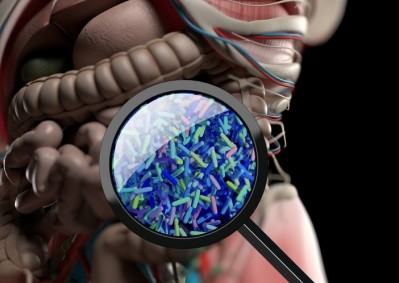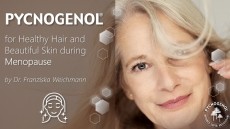Studies show gut microbiome influences ovarian aging

The gut microbiome works as a regulator of circulating estrogens. However, when gut microbiota dysbiosis and lower microbial diversity occur, they reduce microbial β-glucuronidase (gmGUS) and cause alterations in systemic estrogens. GmGUS, which is involved in estrogen metabolism, can transform estrogen from its deactivated form to active forms. This is important as estrogen secretion decreases with the decline of ovarian function.
“Ovarian aging occurs prior to the aging of other organ systems and acts as the pacemaker of the aging process of multiple organs,” the researchers wrote. “As life expectancy has increased, preventing ovarian aging has become an essential goal for promoting extended reproductive function and improving bone and genitourinary conditions related [to women as they age].”
In addition, estrogen or estrogen-like compounds modulate the microbiome and maintain gut epithelial barrier integrity, at least in mice with metabolic syndrome. Supplementing estrogen-like foods such as soy isoflavones in diets augments the abundances of Bifidobacterium and Eubacterium while restraining Lactobacillus and unclassified Clostridiaceae in postmenopausal women.
Moreover, the maintenance of a “youthful” gut microbiota during ovarian aging may limit ovarian senescence and provide additional benefits, the researchers noted.
Ovarian aging delay
To bolster the link between the gut microbiota and natural ovarian aging, the study explored the effects of fecal microbiota transplantation (FMT) in naturally aging mice.
The researchers highlighted one study in which 42 mice were treated with FMT from young donors (five weeks old). After the transplantation, older mice appeared to have a “young animal-like phenotype” in the gut microbiome, and follicular atresia and apoptosis were reduced to improve the fertility of aged mice.
“These ovarian aging-delay effects might be explained by improving the inflammatory status and immune microenvironment,” the researchers wrote.
They also made the connection between premature ovarian insufficiency (POI)—which presents as a menstrual disorder (amenorrhea or oligomenorrhea)—and the disturbance of core microbiota, short-chain fatty acid (SCFA) producers and an increase in opportunistic pathogenic bacteria. Modulating gut microbiota may provide a new strategy for ovary preservation.
The potential of supplements
To date, no clinically viable techniques are available to either delay or reverse ovarian dysfunction associated with advanced age.
“However, important advances have been made in the field of anti-ovarian aging during the past decades, and numerous emerging antiaging agents, such as coenzyme Q10 (CoQ10), melatonin, nicotinamide mononucleotide (NMN), resveratrol, rapamycin and N-acetyl-L-cysteine (NAC), have shown great potential to delay or reverse ovarian aging,” the researchers wrote.
For example, CoQ10 increased clinical pregnancy but did not seem to affect live birth or miscarriage rates. It also has an impact on the gut microbiota and the metabolites they produce. A three-week administration of CoQ10 more than doubled relative Ruminococcus abundance. Lachnospiraceae increased over seven times, and butyrate increased by 1.26 fold. Pumpkin juice rich in CoQ10 gavage increased the abundance of Lactobacillus and Bifidobacterium and further protected the gut barrier by reducing Proteobacteria of mice.
Growing evidence
Ovarian aging refers to the gradual decline in ovarian function with age. It is the gradual deterioration in oocyte quantity and quality, accompanied by menstrual cycle irregularity, infertility and lastly, the cessation of menses. The ovary experiences a different lifespan from other organs.
Recently, multiomics profiling identified a significant acceleration in female biological aging around the third and fifth decades of life, which coincided with the time points of fertility decline and menopausal status, the researchers observed.
“As life expectancy increases worldwide, ovarian aging will gradually become a major health problem for women,” they wrote. “Ovarian aging is an extremely complex process with causes that have not yet been fully clarified. Growing evidence shows that there is a link between the gut microbiota and ovarian function, and the gut microbiota-ovary axis contributes to follicular development.”
Source: Gut Microbes
doi: 10.1080/19490976.2023.2295394
“The influence of the gut microbiome on ovarian aging”
Authors: Feiling Huang et al.













